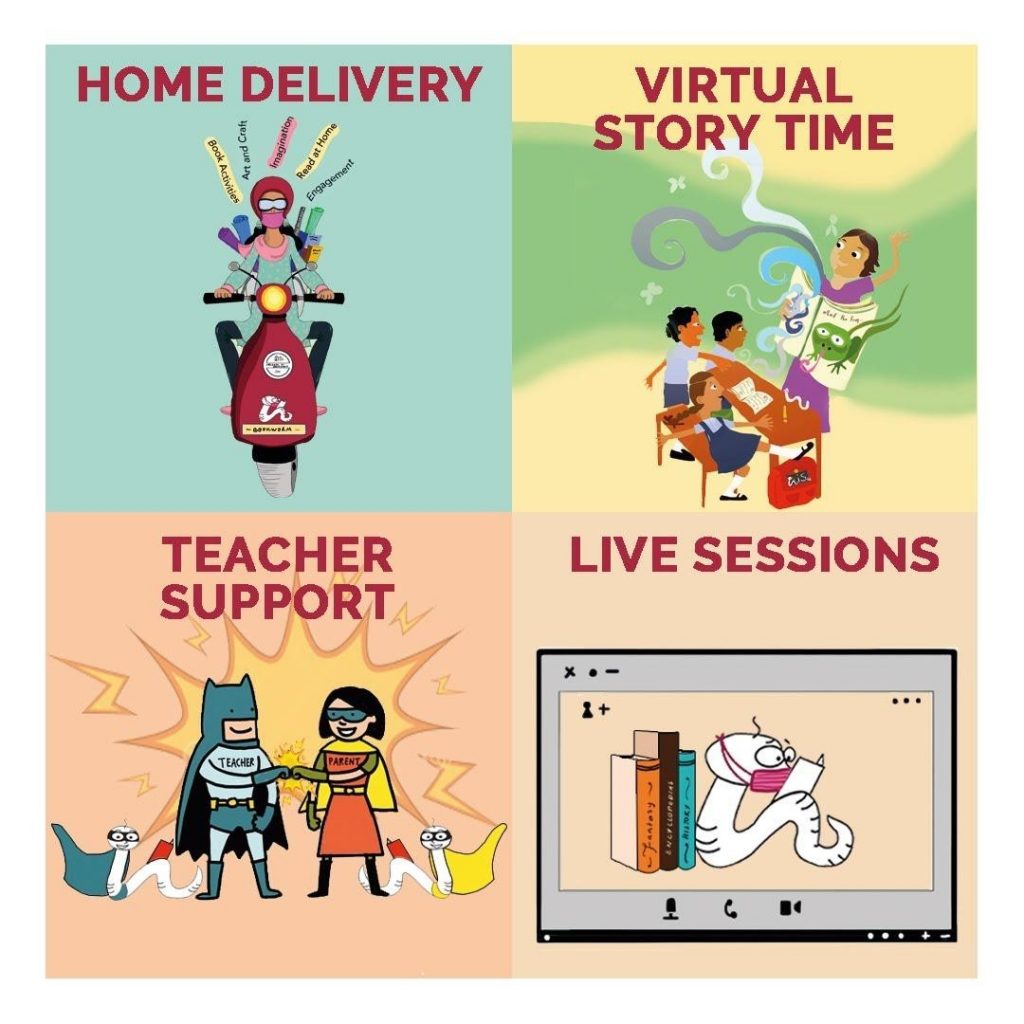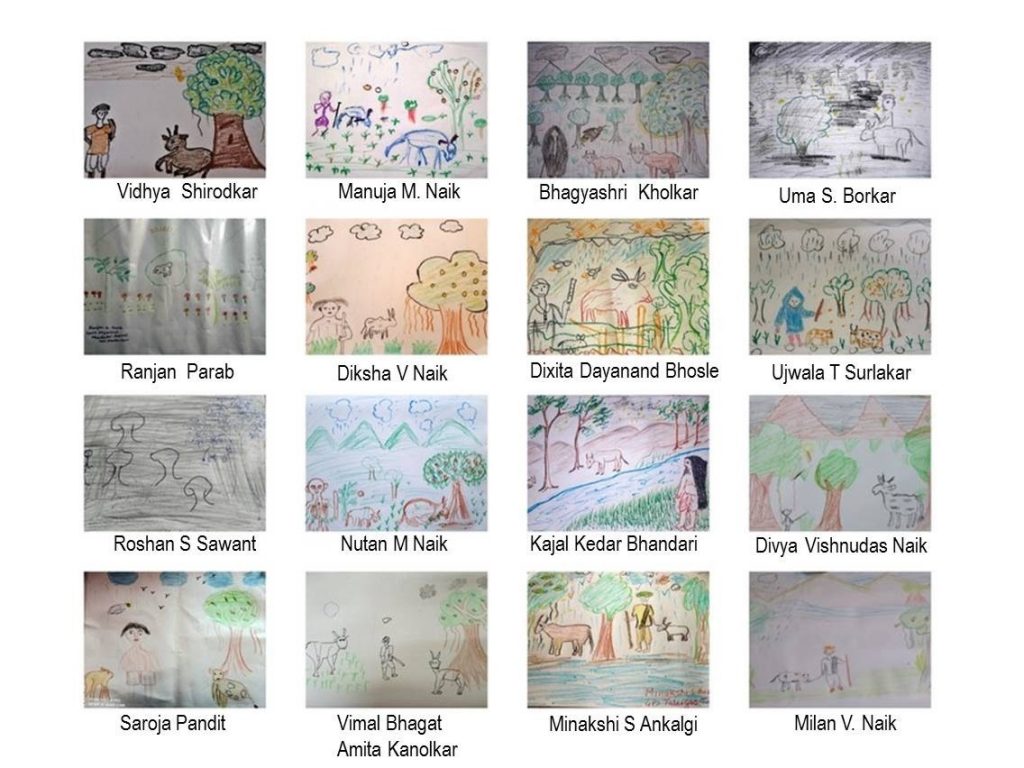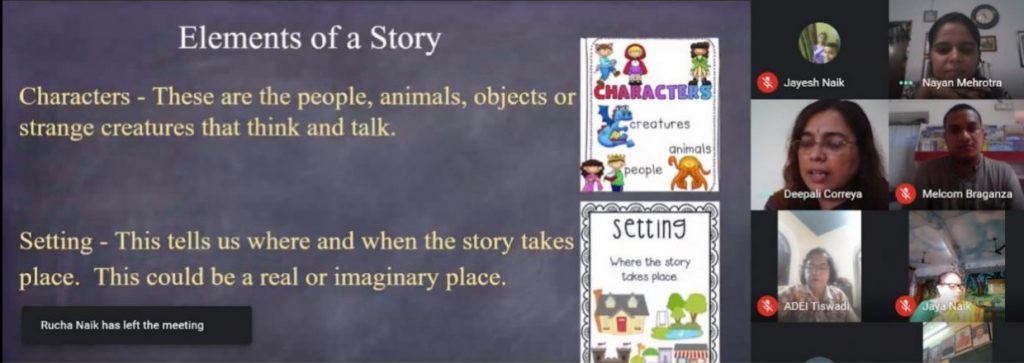Written by Nayan Mehrotra and Pranita Naik
The Library in School (LiS) program was primarily focussed on conducting sessions in schools that were part of the program, teacher mentoring and capacity building workshops. Our aim was to build an engagement with the collection that strengthens comprehension, awareness of the world and self and seeds lifelong engagement with books. However the emergence of COVID-19 posed various challenges with regard to our Library in School (LiS) program. The challenges were varied, like reaching out to children, continuing the capacity building program for teachers or conducting sessions with children around stories. Technology played both a curse and a boon in such difficult times. To some, it provided solace in times of isolation but on the other hand, it also widened the gap which already existed.
The LiS team came together to discuss both the positive and the negative aspects of having such offerings in virtual mode. In our discussions, we realised that children and teachers both need to be supported and what is better than sharing stories and meeting teachers on a periodic basis to share our learnings ?
The team collectively devised an approach through which the core of the LiS program can be sustained even in difficult times. 
Image 1: Approach for COVID Relief
Our response was not limited to one area; rather we focused on strengthening and addressing the needs of all the stakeholders of our program.
One change in teacher’s capacity building program is that now we are having virtual workshops with teachers through Google Meet platform.
Our Learning in Sessions
The first session with teachers ‘Stories for Critical Thinking’ showed a great participation from teachers, where they also shared the need of having such workshops. Between July and November, we reached out to more than 250 teachers from Tiswadi and Ponda Talukas. Virtual mode of training has enabled us to reach many more schools and teachers whom we would not have been able to meet otherwise.
Some learnings reaffirmed the faith that we must organize workshops for teachers to grow and learn together.
- The support from state and taluka officials added to the presence and participation of teachers
- We learnt that in a 2 hour session, having a mix of pedagogy and hands-on activities ensures greater participation. It also makes the workshop balanced in terms of content, pace and delivery
- Facilitation of sessions in Marathi has also impacted the participation of teachers. They shared their thoughts and ideas openly as they were comfortable in expressing themselves in Marathi.
- Each workshop had a follow-up activity which was done by more than 65% teachers and it helped them to reflect on the learning from the workshop.
We were delighted to see the eagerness and openness of teachers in most of our sessions. This also made us reflect on the importance of planning and having topics which connect to the needs of teachers.
Image 2: Drawing by teachers from Guided Drawing Session
Challenges faced
The mode of workshops also posed some challenges in terms of design of session. Technology allows one to enable only a few features, however, interpersonal communication and physical workshops have their own importance, which technology cannot achieve.
Due to this, the activities were designed considering what we could do with teachers despite the technological barrier. Also, our physical meetings with teachers are limited in current times and they are not able to connect directly with children. Therefore, we look forward to each one implementing their learnings when schools start.
We also felt that not everyone is comfortable learning virtually. The attention span is comparatively lesser and one tends to get diverted fast. Due to their videos being off during the session due to alleged limited bandwidth, we just had to assume that each one was present and absorbing the session.
Image 3: Teachers in virtual workshop
Overall, through various projects and activities, Bookworm’s work became stronger with a wider reach in these difficult times. It gave us an opportunity to think creatively and keep our work aligned to our vision. It is only in partnership that we grow stronger.




